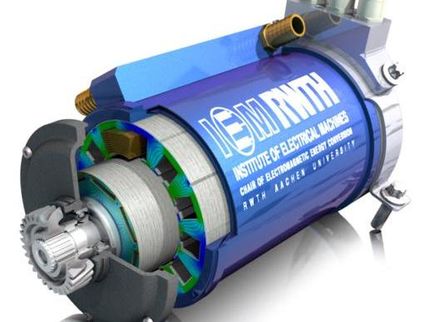Brain Imaging System Starts Operation At UC Berkeley
Advertisement
Varian, Inc. (Nasdaq: VARI) announced today that its 4-Tesla MRI imaging system for research on the human brain is now operating at the University of California, Berkeley. The Varian system is part of the university's Henry H. Wheeler, Jr. Brain Imaging Center and will be used by scientists from many disciplines, including physics, chemistry, biology, psychology, and computer sciences, to study various aspects of the living brain.
Varian, Inc. recorded the sale of the $3-plus million system in the fourth quarter of fiscal year 2000 which ended on September 29, 2000.
Research using the new imager will include studies of both normal and neurologically impaired individuals, as scientists seek to understand the impact of aging on memory and attention, as well as how these functions are disturbed in people with Alzheimer's disease, Parkinson's disease, and attention deficit disorder.
Considerable research is underway studying both humans and animals using high magnetic-field imagers in a technique known as functional MRI or fMRI. Varian imagers used in fMRI rely on high-field magnets, measured from 3 Tesla to 7 Tesla. By contrast, typical clinical MRI systems are rated at 0.5 to 1.5 Tesla. High magnetic-field systems are used because they are more sensitive and produce better images of brain function and other physiology. These systems can also be used to identify specific chemicals in the regions of the brain or other physiological areas under investigation.
Varian Inc.'s fMRI systems are in operation at the University of Minnesota; Brookhaven National Lab, Upton, N.Y.; Neuroscience Institute at Robarts Research Institute, Ontario, Canada; Japan's Institute of Physical and Chemical Research, commonly known as RIKEN; Oxford University in the United Kingdom; and now, the University of California at Berkeley.
New systems are on order for several additional facilities: Emory University, Atlanta, GA; University of California, San Diego; the National Institute for Environmental Studies, Tsukuba, Japan; McLean Hospital, Belmont, Mass.; Albert Einstein College of Medicine, New York; National Foundation for Functional Brain Imaging in New Mexico; and the University of Alberta, Canada.
Nuclear magnetic resonance is the technological foundation for MRI systems, as well as for NMR spectrometers used in chemical, bio-science, materials, and pharmaceutical analysis applications. Varian, Inc. was the first company to commercialize the NMR spectrometer some 50 years ago and remains at the forefront of NMR technology today.













































